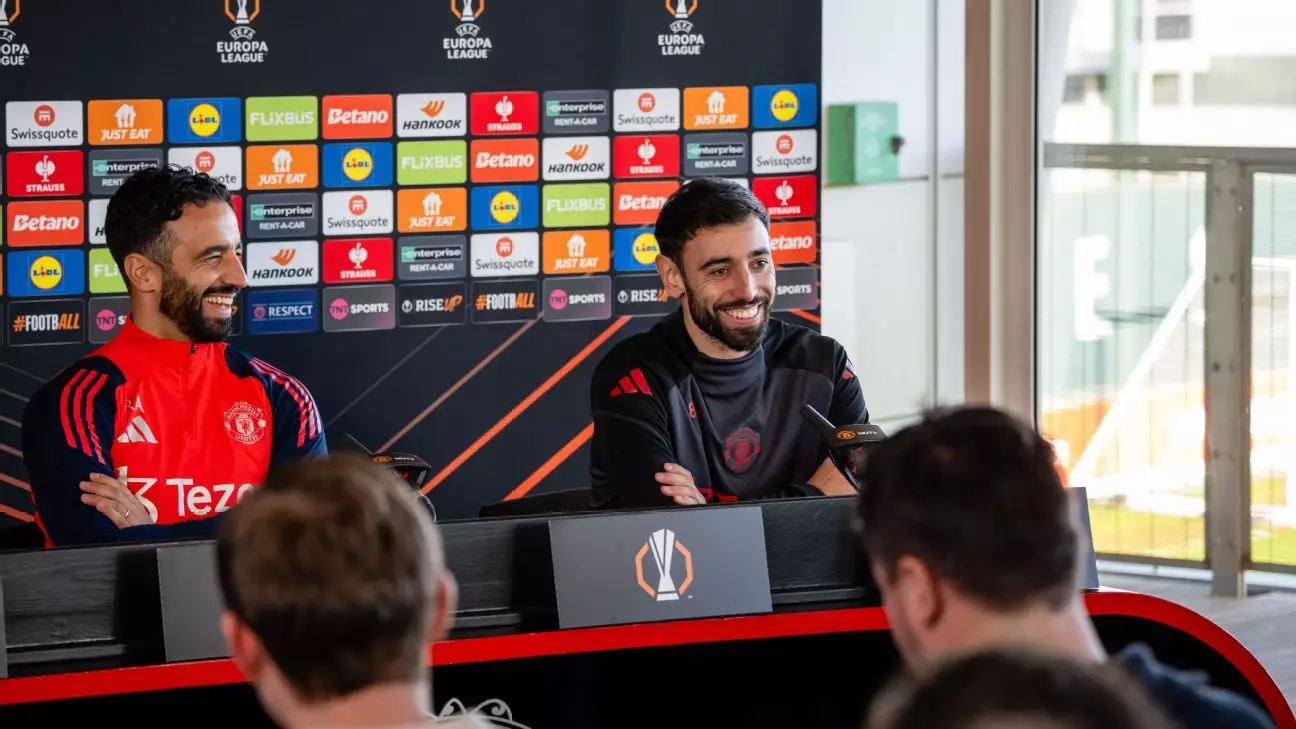As Manchester United undergoes a significant tactical transition under new head coach Ruben Amorim, captain Bruno Fernandes has stepped up to bridge the gap between the coach and his teammates. The responsibility of a captain in football goes beyond mere leadership; it includes the critical function of facilitating communication. Fernandes recognizes that effective on-pitch leadership is essential, especially as the team adapts to the fresh tactics that Amorim is implementing.
In the aftermath of a challenging match, where the Red Devils managed only a draw against Ipswich, Amorim candidly conveyed his expectations, admitting that the team would need to endure some hardship during this learning phase. “Suffering” appears to be an unavoidable part of the process, and Fernandes has vowed to minimize this discomfort by positioning himself as a guiding force. His approach emphasizes the importance of internal cohesion—a concept that is particularly vital as a new strategy takes hold.
In an environment where communication can be compromised by noise and chaos, particularly during high-stakes matches, Fernandes has adopted a proactive stance by immersing himself in training sessions and absorbing the tactical intricacies of each position. His determination to grasp the nuances of the team’s play reflects a deeper understanding of football dynamics, whereby players must be equally aware of their role and that of their teammates. This awareness, as he explains, enables players to react and adapt in real-time, often in the absence of explicit instructions from the sidelines.
Fernandes articulates his commitment to collective problem-solving on the pitch, emphasizing that his role is not merely to follow orders but to interpret situations collaboratively with his teammates. This perspective aligns with the very essence of team sports, where individual brilliance must be harmonized with team strategies.
With the departure of Erik ten Hag, who faced criticism for the team’s poor start to the season, United finds itself at a pivotal juncture. The mid-season managerial change signals that things were not functioning as they should, and Fernandes insists that the onus lies with the entire squad. He acknowledges the uncomfortable reality: it’s easier to dismiss a single manager than it is to overhaul a large group of players. This acknowledgment promotes a culture of accountability, urging his teammates to reflect and share in the burden of responsibility.
As the team prepares to face Bodo/Glimt in their upcoming Europa League clash, the central question looms: Can Fernandes galvanize the group to not only adapt but thrive? The early signs suggest that he is not just a figurehead but a critical cog in this complex machinery of football—a role he takes seriously as he aims to foster unity and resilience among his peers.
Bruno Fernandes’ tenacity in embracing the captaincy amidst transition serves as a beacon of hope for Manchester United. His commitment to both tactical understanding and player accountability reflects an evolution in leadership that could prove vital for the club’s ambitions during a trying period. Only time will tell if the new tactical vision can ignite a resurgence in form, but with Fernandes at the helm, the pathway to adaptation looks promising.

